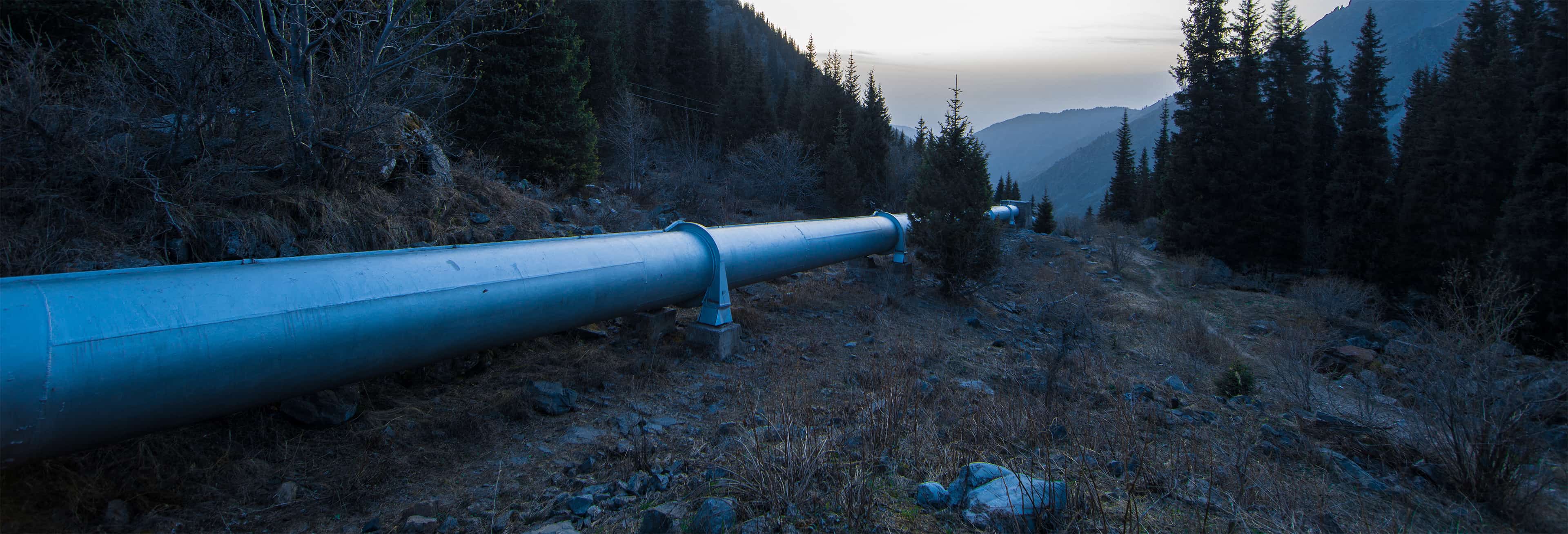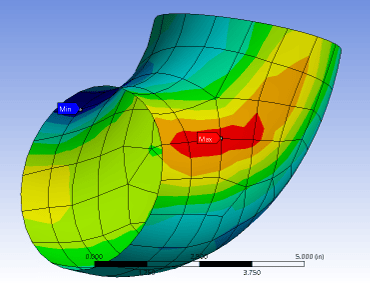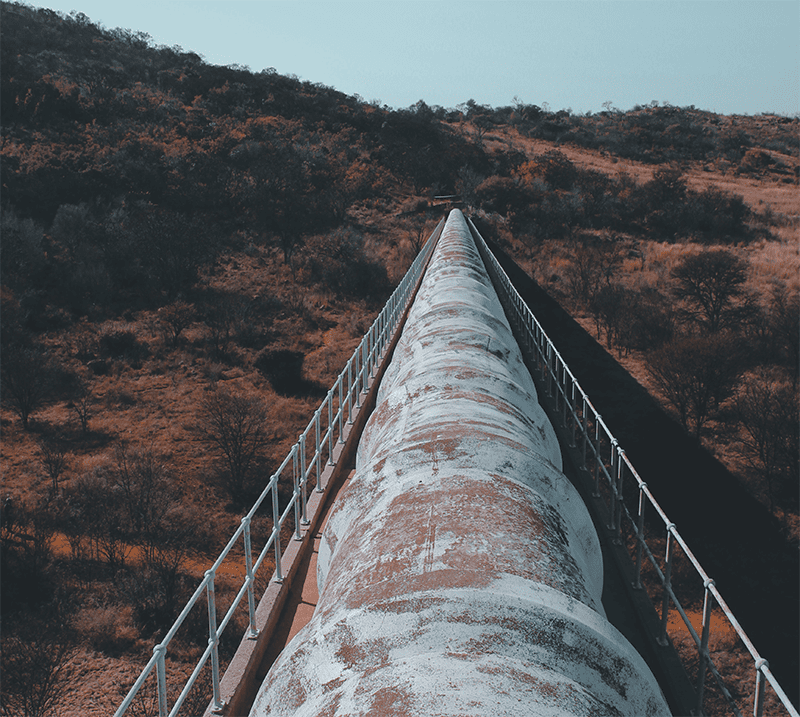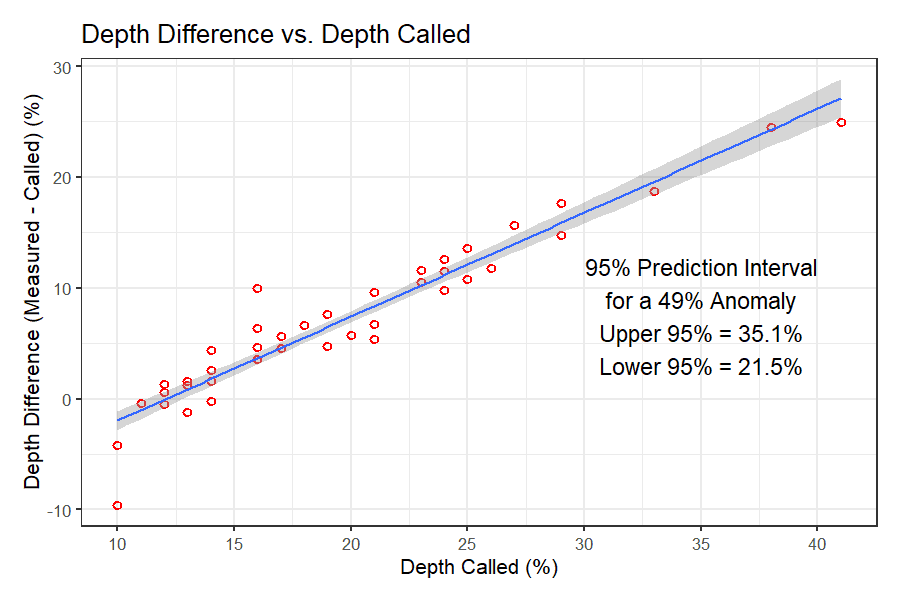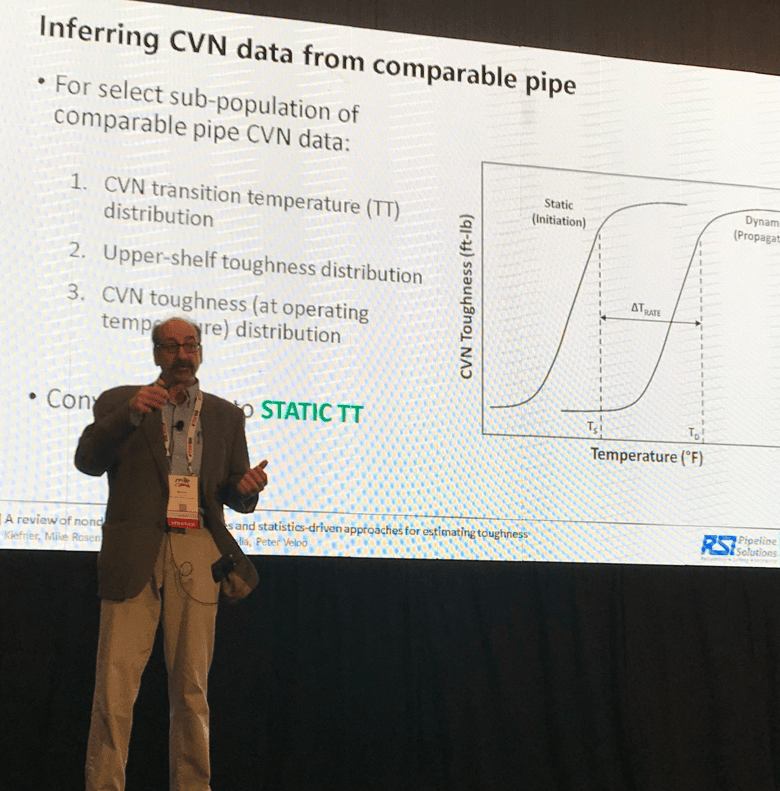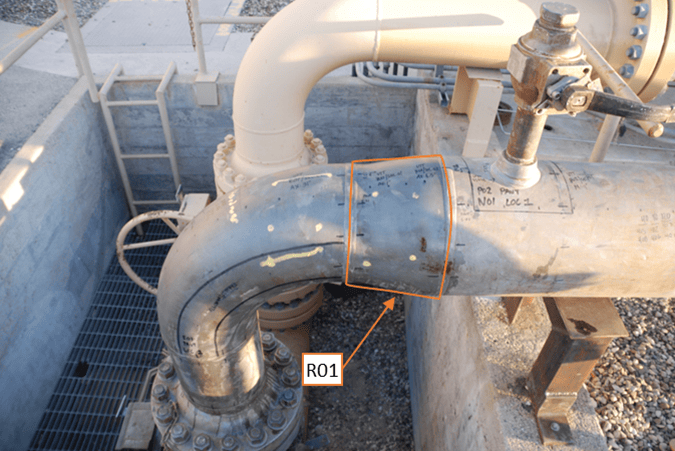RSI Pipeline Solutions has expertise in solving a wide range of reliability, safe operation and integrity concerns for the oil and gas pipeline industry.
Pipe Stress Analysis
Engineering Critical Assessment of Girth Welds
RSI team has extensive experience with girth weld ECA. Our ECA method follows API 1104, API 579, DNV, or similar models. Longitudinal stresses are calculated in a detailed finite element analysis. RSI provides easy to use results for your NDE crew and engineers.
Geo-hazard
Our pipeline geo-hazard services include risk assessment, analysis, and strain gauge and geotechnical monitoring. RSI can assist you with any type of geo-hazard issue from seismic hazard assessment to ground settlement to flood related hazards.
Blast and Vibration Analysis
Blasting operation or construction activities (pile driving, vibratory compactor, etc.) are vibration sources which can induce impulse and cyclic stress in buried or above ground pipes. RSI uses various analytical and numerical models and field instrumentation to calculate these stresses and determine if they are acceptable.
Surface Loading Analysis
RSI team has a long-standing history providing surface loading analysis at pipeline crossings. In most cases RSI uses analytical models. For complex cases involving anomalies or fittings on the pipeline RSI uses advanced finite element analysis.
Free Spanning Pipeline Subjected to Water Current
Vortex-induced vibration (VIV) could be a very serious threat to structural integrity of pipelines crossing waterways. Depending on the situation, assessment method ranges from screening to robust stochastic fatigue life assessment. RSI will also address other flow related forces (drag and lift).
Strain Gauge Monitoring of Pipeline
Strain gauge monitoring is usually used in areas susceptible to geohazard, but they could be beneficial when a pipeline is subjected to any type of internal or external loads. When feasible, direct measurement of the changes in stress is the best method of monitoring the structural integrity of a pipeline.
Engineering Critical Assessment of Girth Welds
RSI team has extensive experience with girth weld ECA. Our ECA method follows API 1104, API 579, DNV, or similar models. Longitudinal stresses are calculated in a detailed finite element analysis. RSI provides easy to use results for your NDE crew and engineers.
Geo-hazard
Our pipeline geo-hazard services include risk assessment, analysis, and strain gauge and geotechnical monitoring. RSI can assist you with any type of geo-hazard issue from seismic hazard assessment to ground settlement to flood related hazards.
Blast and Vibration Analysis
Blasting operation or construction activities (pile driving, vibratory compactor, etc.) are vibration sources which can induce impulse and cyclic stress in buried or above ground pipes. RSI uses various analytical and numerical models and field instrumentation to calculate these stresses and determine if they are acceptable.
Surface Loading Analysis
RSI team has a long-standing history providing surface loading analysis at pipeline crossings. In most cases RSI uses analytical models. For complex cases involving anomalies or fittings on the pipeline RSI uses advanced finite element analysis.
Free Spanning Pipeline Subjected to Water Current
Vortex-induced vibration (VIV) could be a very serious threat to structural integrity of pipelines crossing waterways. Depending on the situation, assessment method ranges from screening to robust stochastic fatigue life assessment. RSI will also address other flow related forces (drag and lift).
Strain Gauge Monitoring of Pipeline
Strain gauge monitoring is usually used in areas susceptible to geohazard, but they could be beneficial when a pipeline is subjected to any type of internal or external loads. When feasible, direct measurement of the changes in stress is the best method of monitoring the structural integrity of a pipeline.
Fitness For Service
Flaw Assessment
Utilizing either API RP 579 or NG-18 methodologies, RSI calculates estimated failure pressures and prioritizes flaws for further evaluation or repair. We can provide this service based on ILI data or NDE field inspection measurements.
Remaining Life Assessment
The RSI team has a long-standing history providing remaining life assessments for time-dependent threats. Our assessment methods are based on current industry best practices, such as API RP 1176 for the management of cracks. RSI provides results that can be integrated into integrity management planning, including reassessment scheduling.
Processes and Plans
RSI can develop new FFS related processes and plans that meet regulatory and industry standards. In lieu of new development, RSI can review existing Company processes and plans, perform gap analyses, and provide recommendations for improvements.
Hydrostatic Test Planning
RSI can support your next hydrostatic test by developing a plan that meets Company, regulatory and industry standards. Our team studies integrity and operational objectives to define test segmentation, target pressures, and duration (hold-times). Consideration for the potential of multiple test failures and development of contingencies test plans may also be included.
Hydrostatic Test Evaluation
Our team reviews that test objectives were met, verifies there is no evidence of a leak, and all necessary documentation is complete and correct. Additionally, RSI can conduct flaw and remaining life assessments based on an analysis of test results.
Professional Engineer Approval
RSI’s team of multi-state licensed Professional Engineers can provide expert review and approval of select projects and plans. This includes PE approval of pressure test results.
Engineering Studies
In need of an in-depth engineering study? RSI has expertise in digging into the details. Check out our Case Studies page for a sample of our scientific approaches to solving problems.
Regulatory Compliance
RSI can assist you with your regulatory compliance needs. This includes services such as developing or reviewing integrity management plans, audit preparation and support, and incident response.
Root Cause Analyses
Our comprehensive root cause analyses explore events and processes leading up to an event, identify incident causes, and ultimately recommend effective solutions. The program includes site visits, interviews, data analysis, identification of direct and root causes, as well as contributing factors, development of solutions, and regulatory support.
Risk Assessment
Risk assessment and management is vital for pipeline integrity and public safety. RSI can provide technical guidance for operators in need of risk assessment and hazard analysis. RSI is also experienced in developing customized asset management tools that integrate risk data.
Flaw Assessment
Utilizing either API RP 579 or NG-18 methodologies, RSI calculates estimated failure pressures and prioritizes flaws for further evaluation or repair. We can provide this service based on ILI data or NDE field inspection measurements.
Remaining Life Assessment
The RSI team has a long-standing history providing remaining life assessments for time-dependent threats. Our assessment methods are based on current industry best practices, such as API RP 1176 for the management of cracks. RSI provides results that can be integrated into integrity management planning, including reassessment scheduling.
Processes and Plans
RSI can develop new FFS related processes and plans that meet regulatory and industry standards. In lieu of new development, RSI can review existing Company processes and plans, perform gap analyses, and provide recommendations for improvements.
Hydrostatic Test Planning
RSI can support your next hydrostatic test by developing a plan that meets Company, regulatory and industry standards. Our team studies integrity and operational objectives to define test segmentation, target pressures, and duration (hold-times). Consideration for the potential of multiple test failures and development of contingencies test plans may also be included.
Hydrostatic Test Evaluation
Our team reviews that test objectives were met, verifies there is no evidence of a leak, and all necessary documentation is complete and correct. Additionally, RSI can conduct flaw and remaining life assessments based on an analysis of test results.
Professional Engineer Approval
RSI’s team of multi-state licensed Professional Engineers can provide expert review and approval of select projects and plans. This includes PE approval of pressure test results.
Engineering Studies
In need of an in-depth engineering study? RSI has expertise in digging into the details. Check out our Case Studies page for a sample of our scientific approaches to solving problems.
Regulatory Compliance
RSI can assist you with your regulatory compliance needs. This includes services such as developing or reviewing integrity management plans, audit preparation and support, and incident response.
Root Cause Analyses
Our comprehensive root cause analyses explore events and processes leading up to an event, identify incident causes, and ultimately recommend effective solutions. The program includes site visits, interviews, data analysis, identification of direct and root causes, as well as contributing factors, development of solutions, and regulatory support.
Risk Assessment
Risk assessment and management is vital for pipeline integrity and public safety. RSI can provide technical guidance for operators in need of risk assessment and hazard analysis. RSI is also experienced in developing customized asset management tools that integrate risk data.
Training
Microstructure Quantification for Line Pipe Steels
In this course, you will learn about the steelmaking and line-pipe making processes that give rise to different microstructural features. Next, you will learn about some specific effects and relationships between the quantifiable aspects of steel microstructure and some important properties of steel. We will walk you through the important specifications for quantitative metallography, such as ASTM E112 for grain size evaluation. Finally, you will be trained on how to quantify microstructures using our accurate, streamlined manual methods. By the time you complete this training you will be doing more than just “going through the motions” of quantifying microstructures. You will also begin to understand the context and meaning of your results.
Microstructure Quantification for Line Pipe Steels
In this course, you will learn about the steelmaking and line-pipe making processes that give rise to different microstructural features. Next, you will learn about some specific effects and relationships between the quantifiable aspects of steel microstructure and some important properties of steel. We will walk you through the important specifications for quantitative metallography, such as ASTM E112 for grain size evaluation. Finally, you will be trained on how to quantify microstructures using our accurate, streamlined manual methods. By the time you complete this training you will be doing more than just “going through the motions” of quantifying microstructures. You will also begin to understand the context and meaning of your results.
MAOP Reconfirmation and Material Verification
Materials Verification
RSI has extensive experience determining the properties of unknown pipeline features based on nondestructive in-ditch inspections. Probabilistic estimates of grade and/or toughness are calculated from measured OD, wall thickness, composition, microstructure, and hardness using machine learning models and a database of several thousand MTR’s spanning 8 decades. The probabilistic approach enables accurate accounting for measurement uncertainty per PHMSA requirements.
Materials Verification
RSI has extensive experience determining the properties of unknown pipeline features based on nondestructive in-ditch inspections. Probabilistic estimates of grade and/or toughness are calculated from measured OD, wall thickness, composition, microstructure, and hardness using machine learning models and a database of several thousand MTR’s spanning 8 decades. The probabilistic approach enables accurate accounting for measurement uncertainty per PHMSA requirements.

